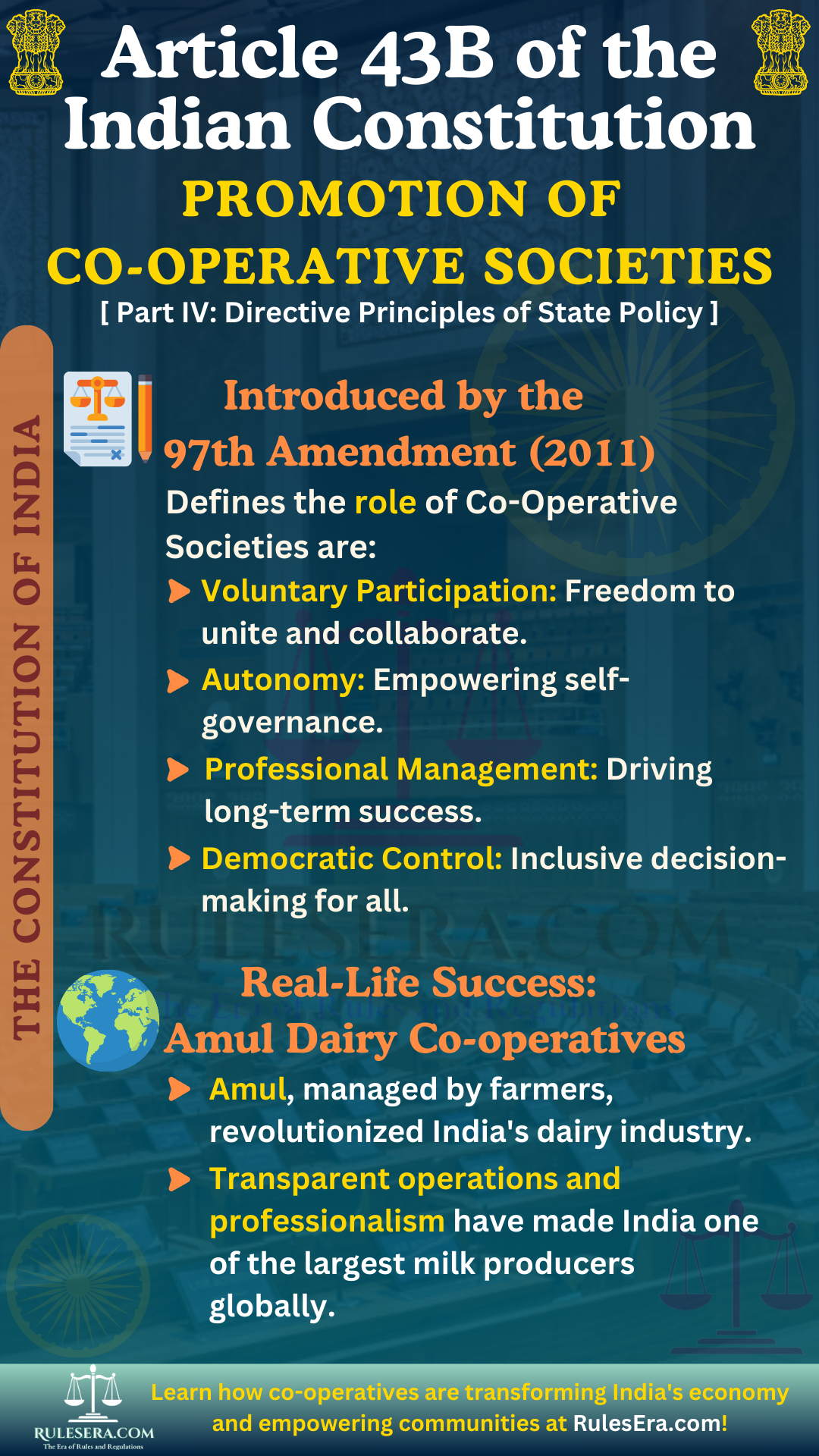Part IV: Directive Principles of State Policy
Article 43B: Promotion of co-operative societies

--- Original Article ---
The State shall endeavour to promote voluntary formation, autonomous functioning, democratic control and professional management of co-operative societies.
Explanation
Article 43B, introduced by the Constitution (Ninety-seventh Amendment) Act, 2011, promotes the formation and functioning of co-operative societies based on the principles of voluntary participation, autonomy, democratic control, and professional management. Co-operatives play a significant role in India’s rural and agricultural development.
Voluntary Formation of Co-operative Societies
Co-operative societies must be formed based on voluntary participation, ensuring that individuals can come together to pursue common economic, social, or cultural goals without external compulsion.
Ensuring Autonomy
Article 43B emphasizes that co-operative societies must maintain autonomous functioning, free from undue state interference, allowing members to govern their own affairs according to their collective goals.
Democratic Control
The democratic structure of co-operatives ensures that all members have a say in the decision-making process, fostering transparency and accountability in the functioning of the society.
Professional Management for Sustainability
Recognizing the need for professional management in co-operatives, Article 43B ensures that these societies are equipped with the skills and practices required to operate efficiently and sustainably in modern economic conditions.
Amendments
Article 43B was introduced through the Constitution (Ninety-seventh Amendment) Act, 2011, which came into effect on February 15, 2012. The amendment elevated the status of co-operative societies, ensuring their constitutional recognition and support.
Real-Life Examples
- Amul Co-operative in Gujarat: The success of Amul is a testament to the power of co-operatives. By ensuring fair prices for milk producers and fostering professional management, Amul has revolutionized India’s dairy industry.
Historical Significance
Co-operatives have played a pivotal role in India’s development since the early 1900s, particularly in agriculture and rural credit. The constitutional recognition of co-operatives in 2012 was a step toward formalizing the importance of these organizations, ensuring democratic functioning and accountability within the sector.
Legislative History
Article 43B was inserted by the Constitution (Ninety-seventh Amendment) Act, 2011, with the goal of promoting co-operatives as an essential part of India's economic and social framework.
Debates and Deliberations
The inclusion of Article 43B was widely supported as part of India’s larger goal of promoting grassroots economic development through co-operative societies. The amendment emphasized the importance of ensuring democratic management and professional practices in these organizations.
Frequently Asked Questions (FAQs):
Article 43B focuses on the promotion of co-operative societies, ensuring that they operate with voluntary participation, autonomy, democratic control, and professional management.
The 97th Amendment gave constitutional recognition to co-operatives, mandating that the State promote their formation and democratic management, ensuring their crucial role in India's economy.